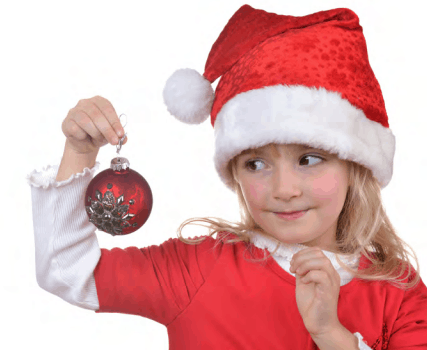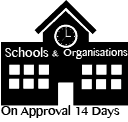14 TIPS FOR CHRISTMAS / HOLIDAY SEASON

- Social Scripts are great to use at Christmas to explain traditions, and expectations (i.e. thank for present even if you already have, don’t like etc) Check my blog for tips on how to write Scripts
- Often children give out cards to each other at schools, this is an important part of ‘friendships’ in schools. Help your child take part in card giving if it is part of the school ‘culture.’ I find using the class photo is a great visual to support with the selection of who to make cards for etc.
- Some Classes do a class Kris Kringle. If they have to buy a gift for another child, this is a great opportunity to talk about how to choose a gift for someone else i.e. “what other people like” how to ask people what they like or observe them etc.
- Use a Calendar to indicate any changes in routines, concerts, presentations, visitors, shopping, haircuts etc
- Youtube can be a good place to look at Christmas Traditions – i.e. look at Christmas Morning Routine, Unwrapping Presents etc
- Christmas songs and carols will undoubtedly make their appearance. Find out the words if you don’t already know them – then make a little book for each carol or song and get your child to help you illustrate it.
- Buy a CD (or Download) of Christmas songs and carols to play at home and in the car.
- Read stories about Santa. Explain the Christmas tradition that Santa brings presents. Don’t forget to mention that Santa is clever and can get into our houses even though most of our houses don’t have chimneys! Explain that we don’t have snow at Christmas time that in Australia / New Zealand Christmas falls in the summer. If you don’t explain your child may expect snow.
- Is Santa Real? For older children they may start asking questions about Santa. Check out my Facebook page where we always have some great tips and ideas about how to approach this sensitive issue.
- Make chains and other decorations with your child to make your house look festive. If your child is old enough they could make his own cards and simple presents. Even home made wrapping paper – sheets of butchers’ paper painted yellow, red and green adds a lovely touch.
- Cooking is often a well loved activity for many children so don’t forget to include doing some Christmas cooking on your to do list. Talking about what you think other family members might like is an excellent way of extending your child’s awareness of others and their particular likes and dislikes.
- To make sure that your child understands which presents are for them stick a small photo on the gift tag instead of their name. Put a photo of the gift giver on as well to truly add meaning for your child.
- Take you child out at night to look at the Christmas lights.
- As Christmas is a time for families and friends you need to prepare your child for visitors, both expected and unexpected. Explain to your child it is OK for them to go to their room when people come but you will be pleased to see them if they feels like joining you. Also remember to tell your visitors what kind of greeting your child prefers i.e: that your child does not like to be hugged and kissed and that they would rather just shake hands or greet them from a distance.
12 ESSENTIAL TIPS CONCERTS &
END OF YEAR CELEBRATIONS

- Use Schedules, Calendars, Diaries to forewarn about upcoming events.
- Photos: Take Photographs or find pictures of people, places. Take Photos of teacher for next year AND the students in their class. (Likewise: Take Photos of relatives coming to stay).
- Use Timers: Letting them know how long the Assembly, Concert or Activity will go for will make a huge difference to their anxiety levels. (If activities run overtime allow them to leave if they have stayed for the set time) see this page on the website for Timers.
- Give a JOB. In the concert let them be the stage hand, the door keeper. The school photographer. The more focused and clear their JOB the less stress.
- Limit their choices and be very specific with choices. (ie: sit at end of row, not anywhere in hall!).
- Give something in their hands as usually calm best when have something in their hands. See “sensory tools “ page for ideas.
- Avoid verbal overload. Use visuals to support verbal and give only one instruction at a time.
- Set up clear rules and boundaries (especially for “special events”).
- Make social scripts of upcoming events, books about holidays, change of teachers, etc. Let them refer back to them and reread to prepare for activities. See my Blog for “How to Write Social Scripts” .
- Use language that tells them “what to do”. For Example: “Sit Down”, “Start your work”, “ Pack away” “Listening”.
- Give them a “buddy”, make sure you pre-warn buddy how to be supportive.
- Keep the drinks up and ensure go to the toilet. Once they are in busy hall, on bus could have meltdown as forgot to drink or go to toilet.
FAMILIES / CARERS YOU MIGHT LIKE TO THINK HOW TO ADAPT THE ABOVE!
- Pre-warn about visitors family visitors: “When Grandma comes she will huge you like this!”
- Put labels on outside of present, what is in the inside? This is great! No surprise is a good surprise. Find out if favourite TV shows are OFF over Xmas Break? (I have called ABC before!)
- Use a Calendar to mark on all events
- Don’t forget to include “go home” from holidays, as they might think they are on holidays FOREVER!
TOP TIP
Give the child a Job! Taking photos for the newsletter/family is effective or videoing the concerts for the class/family to watch.


 Sorry we no longer ship items outside Australia. Please consider the digital versions of Sue’s Books –
Sorry we no longer ship items outside Australia. Please consider the digital versions of Sue’s Books – 